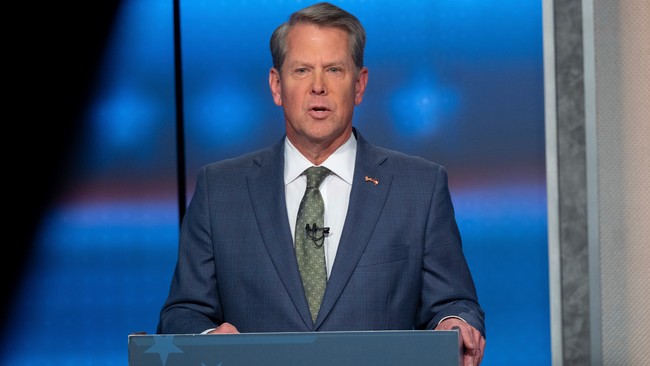Top News
New Georgia Voting Rules Approved

While there are plenty of people talking about improving election security, Georgia appears to be doing something about it. Just in time for this year’s elections, the Georgia legislature has passed reforms that will impact access to the presidential ballot. They have also altered the rules defining the criteria for being able to submit a ballot and how ballots can be challenged. Ballot challenges will be under strict scrutiny this year with more people expected to be monitoring the process from each party, particularly in swing states like Georgia. The measure has been sent to Republican Governor Brian Kemp, who is expected to sign it into law. Needless to say, many Georgia Democrats are not happy about this. (Associated Press)
Georgia lawmakers on Thursday approved new rules for challenging voters and qualifying for the state’s presidential ballot that could impact the 2024 presidential race in the battleground state.
Senate Bill 189 passed the House by a vote of 101 to 73 and the Senate by a vote of 33-22, sending it to Gov. Brian Kemp for his signature or veto.
Republicans in Georgia have repeatedly floated election changes in the wake of false claims by former President Donald Trump and other Republicans that he lost Georgia’s 16 electoral votes in 2020 because of fraud.
One of the first changes in the bill may make it easier for third-party candidates to make it onto the ballot. Any party that has qualified for the presidential ballot in at least 20 states or territories will automatically be eligible. This could make it easier for No Labels or the Libertarian Party to gain ballot access without having to jump through as many hoops. The Georgia GOP is no doubt considering the possibility that candidates like RFK Jr. could appear, potentially eating into Joe Biden’s totals. Keep in mind that Biden only carried Georgia by less than 12,000 votes in 2020, or less than one-quarter of one percent. You wouldn’t need to peel too many of those voters away to flip the outcome. As of this week, Trump is leading Biden in Georgia by seven points in the latest Bloomberg poll.
The bill also clarifies the grounds for challenging voter eligibility. Voters may be challenged on the grounds of being dead (duh), having voted or registered to vote in a different jurisdiction, having filed property taxes in a different jurisdiction, or listed a non-residential address on their registration. It’s unclear what items on that list would be objectionable to the many Democrats who voted against the bill. We obviously can’t have dead people voting (which happened multiple times in New York in 2020) and any registration listing a commercial property as an address is suspect. You also can’t have people living in other jurisdictions casting ballots. That wouldn’t matter much in the statewide elections or the presidential race, but local and municipal elections must be limited to those who will be represented.
Democrats attempted to explain their “no” votes by claiming that the law would result in more “baseless attacks” on voters. But who would such attacks be aimed at? Dead people? Those attempting to vote twice or even more? Both of those things happened repeatedly in New York’s then-20th Congressional District in 2020 and several people were arrested.
Assuming Kemp signs the bill, starting in 2026, Georgia ballots will no longer be scanned using QR codes. Many voters complained that all identifying information should be readable by human eyes. The bill would require future ballots to include either readable text or filled-in markers such as bubbles. There haven’t been too many issues with the QR codes thus far, but this change will make the work of monitors easier.
All in all, these changes appear positive. The fact that the Democrats are screaming about them speaks volumes in my opinion. Republicans in other states – particularly the swing states – should consider this bill as a template for future improvements.
Read the full article here


















